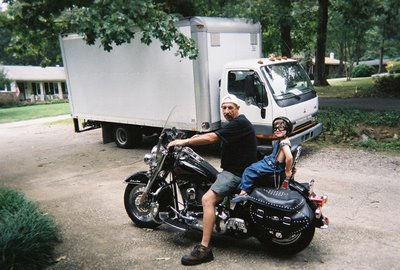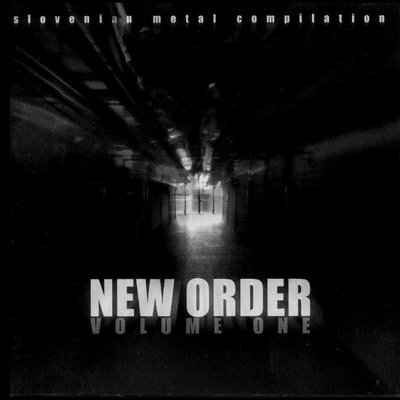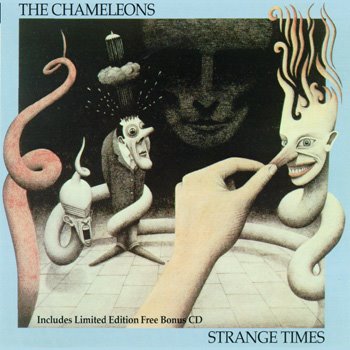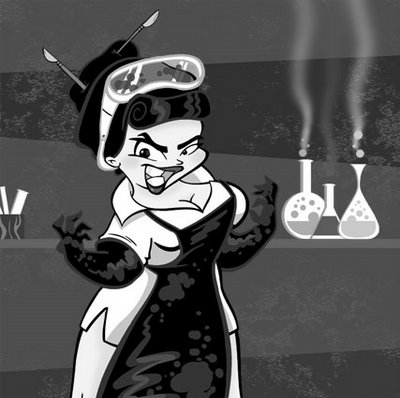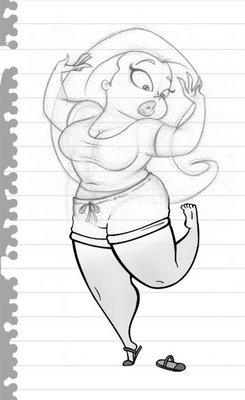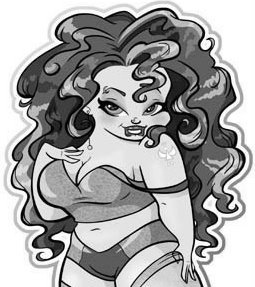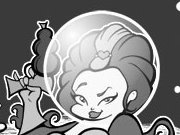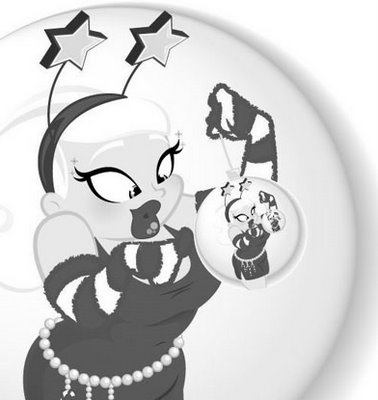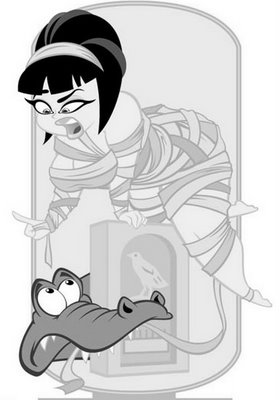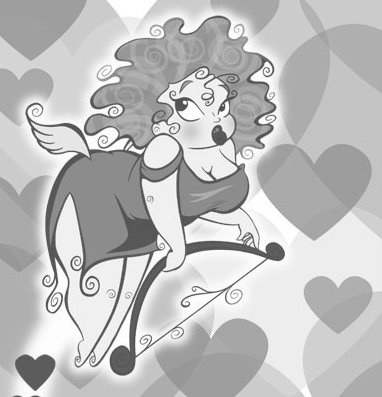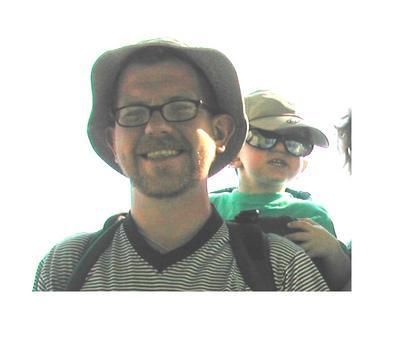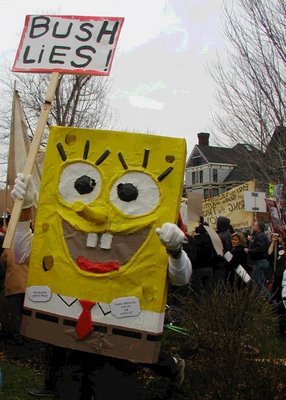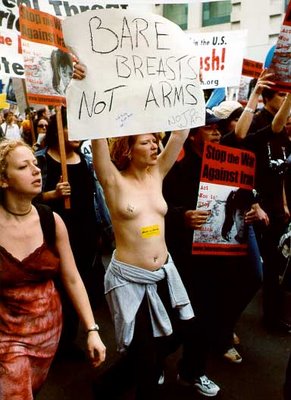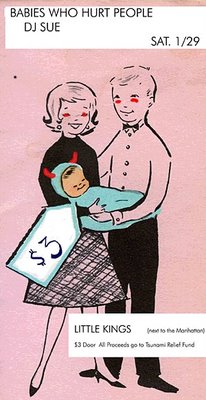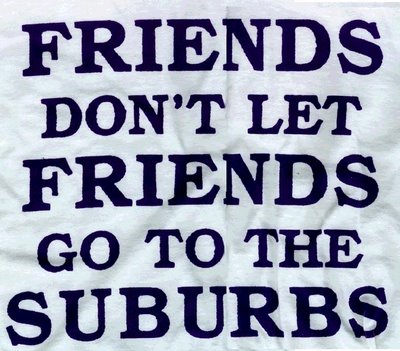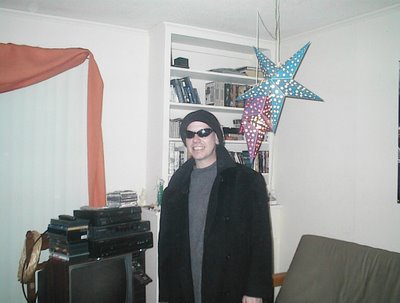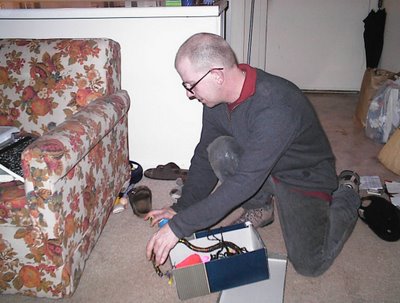Rant Ramble and Repeat 3

Thoughts and stories from the veiw point of an eccentric and eratic orbit.
Monday, July 31, 2006
Sunday, July 30, 2006
Caty's Story
This is a reprint of an excellent article posted on the Icarus project website, http://theicarusproject.net/ , which I found on the Bi POlar Guy's blog, http://bipolardaily.blogspot.com/ . I can't say enough good things about both of these so I will just get on with the article
Caty's Story
By: Caty Simon
I remember therapy—I remember the array of their tasteful, decorative little offices, all the little tchochkes that were supposed to demarcate the small variations among their bourgeois personalities. Were they a sensitive New Age therapist—was the office bedecked in fuchsia quilts and crystal and all those other oh-so-spiritual consumer products? Were they a neo-Freudian therapist, with that imposing bookshelf of fat leatherbounds in perfect unread condition—Father Daughter Incest was the unfortunate title always directly in my view in one worthy’s office with all the delightful mental images it called up. Were they the savior surrogate parent type, with all the testaments to that loving transference, ostentatious displays of the patients’ artwork slavishly dedicated to them all over the room? And the constants—the imposing therapist’s chair, more like a throne, really, from which they peered down at the little “manic depressive” teenaged me, the “client”, in my perch near some luxurious houseplant. This seating plan never varied no matter what breed of therapist I encountered in my career as a patient. I remember the walls covered with their various degrees and awards, seemingly just to emphasize the difference between the accomplished professional and the decompensating mental patient in their care. Later, during my academic theory days, nobody had to explain the concepts of “asymmetry” and “hierarchy” to me twice.
I remember my psychiatrist briskly beginning each appointment by asking me how my mood was. As if I was just a walking receptacle for my “mood”, some ineffable quality untouched by my decisions, my values, or any of the situations I found myself in. I remember my therapist, who was supposedly helping me emerge from my depression, chiding me about forgetting to take the very mood stabilizer which itself was the cause of the intractable depression I suffered throughout my late teens. I remember how all my therapists affirmed the death sentence given to me by the mental health industry and the mainstream culture which embraced it: that contrary to the real scientific facts on the issue which I would discover years later, my genetic makeup guaranteed that I would live with a “mental illness” which could not be cured until the day I died. You can imagine how helpful this prediction was to a depressive teenage girl’s self-esteem, but there it was. Of course, my illness could be treated—in fact, it was imperative that it was treated through expensive medication regimens brought to me by Big Pharma and paid for by my parents’ insurance, regardless of the damaging side effects I might and did experience or the actual proven effectiveness of the medications. (And speaking of tchochkes, I don’t think I really need to add to the chorus of voices crying foul about all those Prozac pens and Zyprexa notepads festooned about each shrink’s office and what all that product placement meant.)
Then, of course, there were the more insidious atrocities. The way therapy pathologized my politics—and I can’t even blame psychiatry for this like a good little member of the consumer/(ex)patient/survivor movement because the tradition my therapists followed by dismissing my “intellectual defenses” whenever I went off about how capitalism destroyed community (especially mine) and how the mental health industry was oppressive (especially to me.) This would earn maybe a small amount of attention until they tried to get back to what was really bothering me—as if it was inconceivable that that was what was really bothering me. I would think of a blurb in bold I’d read in a the local feminist journal, in an article critiquing therapy: “We can’t change the world—that’s a given, right—so what can we do to change you?” After all, my scathing critique of the society I lived in had very little place in an institution whose goal was to make me a more highly functioning member of society. Years later when I finally decided to expand on my leftist babble to the point of leaving the house and finally throwing myself into various human right’s movements, finding validation and community through my part in them and easing away from my depressive immobility, I still wondered why none of my therapists had ever encouraged me to put my proverbial money where my mouth was and do something about all my ideas. Doing something about all the things that depressed me seemed like such an intuitive way to combat my depression, after all. But I guess they liked it better when my money went in their direction. I guess they liked me better prone in their offices talking about my mother.
Ah, my mother. And my father too, while we’re at it. The real meat and potatoes of therapy, the developmental analysis. I could see each and every one of my therapists smack their lips when we really got down to talking about family and formative years, see how they would crow over every new insight about, say, what my mother used to say to me when I was a toddler. It was almost impossible to show them that there was a crucial step between self-knowledge and self-control—and that all important self-knowledge would not stem from looking back at that grisly family milieu. I myself, for example, was “traumatized” more by the slings and arrows of early middle school, but how could you tell a shrink that? And I just kept waiting for when one of my shrinks would tell me what to do with all this knowledge, how I could get better. If we spent half as much time talking about that, about what I wanted to talk about, I might have emerged from my teenaged morass years earlier.
It’s not that all my therapists were bad people—a couple gave me some valuable insights along the way. One woman I saw for some time, during the worst of my medication induced depression, when I basically spent my senior year of high school in bed, gave me one of the few bits of hope that actually pierced through my haze of utter hopelessness. You see, despite the years of psychiatrization I had undergone at that point, despite everything everyone and everything around me was telling me, I still suspected that all this “mental illness” stuff was a farce. But in my depressive self-hatred, I blamed my long stasis on an intrinsic character defect—on my laziness. When I shared my thinking with this therapist, she told me quite simply that she didn’t believe in laziness. In her experience, people always had good reasons for periods of inactivity, or even for “low achievement” throughout their lives. Later, I would realize that I did have quite a few good reasons for my bedridden season, and that in fact it was all a very understandable emotional response to many things that were happening at the time. But at the time, this woman was kind enough to help me stop holding myself in contempt. She was also the one that helped me see what a sexist crock of shit the diagnosis of “borderline personality disorder” was. She pointed out that 90% of the people diagnosed with the disorder were women, and that something like 80-90% of them had suffered some form of abuse. Yet, the correlation between the abuse and the behaviors described in the diagnosis was not mentioned in the DSM-IV—why wasn’t borderline personality disorder redefined as another variant of post traumatic stress disorder, rather than pinning the behavior on something intrinsically wrong with the abused women who displayed them? She went on to show me how the symptoms were basically an illustration of male disgust with extreme examples of normal female socialization. Thanks to her, I was able to reject this elaborate insult in the form of a diagnosis handed to me by the psychiatric system. Nowadays I jokingly refer to it as a description of the doctor’s worst stalker ex-girlfriend.
The thing is, none of these good individuals mattered one bit when they were working within an oppressive system. None of these people, even the best of them, helped me get better, ultimately, b/c not only did therapy undermine me in the myriad ways listed above, it was simply ineffective. What I needed was a community of concerned, socially active people to become engaged with and learn how to relate to, whereas therapy locked me in a room with one bourgeois professional with whom I had a totally artificial relationship—how many relationships outside the therapeutic sphere are so one sided?—who wanted me to become more socially adjusted.
So I gave up on therapy. But for a great many years, it was obvious to me that I would have to improve upon it somehow. No matter how much “work” I did on my own to curb my emotional extremes, it just wasn’t effective enough. I knew that if therapy was actually capable of what it set out to do it would be just the treatment for me, so what sort of thing would succeed where therapy failed? At the same time, I felt drawn to do political work around the human rights abuses I myself had witnessed occurring within the mental health system. It was weird, it seemed that everyone I found in my new leftist friendship circles agreed with me about everything except that one issue. When it came to mental health, they were as mainstream as could be, selling their Aderall prescriptions all over campus when they weren’t sped up on them themselves, informing me solemnly that they had XYZ disorder. I wandered around for a while trying to find the seemingly mythical set of radicals who would politicize the issue of mental health with me. In my quest, I even called NAMI.
NAMI, the National Alliance for the Mentally Ill. I wasn’t aware at the time that this self-proclaimed “grassroots” organization for “friends and family” of those who suffered from “mental illness” was in fact, a front for funds filtered in by the pharmaceutical industry. And the way they “battled stigma”, as they professed in their mission statement, was by convincing all those diagnosed to take pharmaceutical company products and show the world what good little boys and girls we could be. Those critical of mainstream psychiatry don’t have one unified theory of where the different states of emotional extremes labeled “mental illness” “come from” but one phenomenon we’ve noticed is that survivors of trauma and abuse often play out their trauma in strange ways later in their lives. A sad fact is that many of the families involved with NAMI are abusive families, and it’s convenient for them in their denial to ally themselves with a group that ascribes their relative’s problems to a biochemical glitch treatable with pharmaceuticals. So, while NAMI benefits Big Pharma and confused, ignorant and/or abusive family members and friends, they are certainly not “for” the mentally ill, as their moniker claims. Innocent of all this, and eager to do work on the issue, I called them. I told a very skeptical woman about how I was against taking meds personally, and I didn’t see “mental illness” the way the general public seemed to see it…Finally, she said—after telling me again what I’d heard many times before, as if it was creed, that bipolar disorder just couldn’t be managed without medication, whereas I felt like I’d only just started to manage my life once I stopped taking medication—-“You’d like one of our other office members. She likes to say that mental illness is no more pathogenic than pregnancy. But you know, I’ve given birth, and I’ve had a son go psychotic, and it’s simply not the same.” Click
This whole story is really just to illustrate the political setting in Western Massachusetts (and most of the country) around this issue at the time. When Oryx Cohen and Will Hall met and co-founded the Freedom Center four or five years ago, there simply were no grassroots organizations in Western Massachusetts by and for those diagnosed with mental illness to go to for support, advocate for themselves, and politically empower themselves. In fact, throughout the entire country, there was a vacuum. There was Mindfreedom, but it was a national coalition, not much help to someone psychiatrized and politically enraged in Amherst, MA. There were more progressive treatment centers. But for someone done with being “in treatment”, and ready to create some political hell and speak up for the rights of those diagnosed, there was nothing.
There certainly wasn’t anything for me until I ran into the Freedom Center. For years, I’d lectured to my anarcha-kid friends about how psychiatry too could be a system of oppression, but mostly what I’d gotten in return had been blank stares. I lugged around books like The Myth of Mental Illness by Thomas Szasz and Erving Goffman’s Asylums, and Persimmon Blackridge’s incredible book, Prozac Highway, about the trials and troubles of a depressed lesbian performance artist/cleaning lady and the girl committed to a half-way house whom she met over a consumer/(ex)patient/survivor movement listserv made me aware that a movement at least existed somewhere. But without a movement behind me, I was just regarded as a girl who’d taken one of the weird postmodern rites of passage for odd kids too hard. Why didn’t I just shut up and revel in all of this free candy like everyone else? And what about some of my dearest friends, who swore that they could never function without their pills? They were hurt by extremist screeds like the Adbuster issue that basically stated that everyone should stop taking meds immediately b/c they were a capitalist plot, and that we could all just take in the therapeutic effects of fighting the Man instead. And I just couldn’t take myself seriously enough if the most cohesive ideology I could offer them was just a variation on that theme.
Finally, my story comes to the anarchist fair in the Amherst town green on Labor Day, 2003. I drove in from down the road in Northampton, with girlfriend and co-speakers in tow to speak representing a multi issue low income rights group on sex workers’ rights. (Maybe this is the point in the narrative where I should acknowledge that, duh, I live within a very specific and insulated subculture a lot of the time…) After my speech we started idly milling around the literature tables. There was the usual union and commie fare, and I picked up and skimmed through a lot of it. Then I noticed a really unusually untrendy looking person monitoring one of the tables—a perky looking girl in an eighties looking black and gold mohawk and t-shirt that warned me not to annoy the unmedicated person. Then I noticed that the shirt wasn’t just a novelty item—the sign on the booth said—“The Freedom Center—an organization by and for those labeled with mental illnesses.” I noticed the crucial use of the word “labeled”, but I still couldn’t entirely believe what I was seeing.
So I asked the person next to the girl, another standout from the punk crowd, a round smiling man with a white beard in short shorts—he looked kinda like an ex-mental patient May Day Santa Claus—“You know, I’m looking for an organization for ex mental patients that isn’t pro-medication…”
“You’ve found us,” he said, beaming down at me.
“But you know,” I stammered, “I’m also looking for an organization that isn’t anti-med, that doesn’t make people ashamed of taking their drugs, cuz, you know, personally I decided to stop taking medication myself but a lot of my friends still swear by them and I don’t necessarily disagree with them…”
“You’ve found us,” he repeated, still grinning in his weirdly beatific way.
I took a flyer, saw that the meetings were in downtown Northampton where I lived, and a month later I went to my first Freedom Center support meeting.
I was lucky enough to have found what I was looking for, and I’ve stayed with the Freedom Center for the past two years as an active organizer. I speak at workshops and colleges, organize and participate in events and protests, and perform a variety of other functions to promote education and activism around these issues. I agree with—and in fact, am wildly vehement about—every single component of the Freedom Center mission statement, which runs something like this (off the copy on our website): Freedom Center is the area’s only group run by and for people labeled with severe ‘mental illnesses.’ We call for compassion, human rights, self-determination, and holistic alternatives. We stand against the mental health system’s widespread despair, abuse, fraudulent science and dangerous treatments. Our goals are to end all force and coercion, including involuntary treatment and forced drugging; to ensure that all treatment decisions are based on true informed consent; to support effective alternatives to toxic psychiatric drugs such as nutrition, exercise, and holistic health care; to promote voluntary, non-paternalistic social supports such as peer-run programs, housing, and therapy; to expose psychiatric and the pharmaceutical industry myths, propaganda, and corruption; to make true client control and empowerment the center of all mental health services; to defend our human rights; and to end fear and misunderstanding of “madness” and extreme states of consciousness.
But despite how excited I am about how we’ve politicized “crazy” people’s rights in general, I think we’ve really achieved the most through our support group. Its’ peer run model is everything therapy isn’t.
One can’t say enough about what a difference it makes to work through one’s problems among peers rather than trying to solve them within a hierarchical model. And this isn’t just about some idealistic notion of equality, either. How is one expected to become a mature, self-determining and mentally healthy person when every week one assumes a dependent position before some secular father confessor figure? In our support groups, we try to help people make their own decisions based on their own values rather than judging them according to an APA approved notion of what is “adjusted”, “functional”, and “mentally healthy.” These standards can literally terrorize people.
A year ago, a young college student came to our group struggling to escape an abusive relationship. We emotionally supported her through many weeks of terror, and finally helped her talk to her college administration about securing emergency housing. Now, a year later, she is one of our most accomplished activists, representing us in our alliance with local domestic violence shelters and rape crisis centers in working to build better access to these services for trauma survivors diagnosed with mental illness. When she is asked why she chose to come to the Freedom Center for help rather than a domestic violence shelter or other more traditional services, she says that she was afraid of being committed or thrown out of the shelter because of her cutting. And, “who were they going to believe—the hysterical young girl crying and cutting herself with a kitchen knife or the calm, forty year old man who claimed that she was crazy?”
(Chesler’s Women and Madness makes an important point when it illustrates how women bear the brunt of the damage that these standards of mental health can do. The norm for mental health is male, as most cultural norms are, so women are caught in a Catch 22—act according to the way women are socialized to respond to stressful situations, for example, being emotionally expressive, i.e. “hysterical”, and you’re judged as crazy. But act according to male socialization and you’re gender transgressive and therefore, crazy.)
At the FC support groups, we honored her cutting as a coping mechanism she was using to get through an extremely difficult situation—she told us how the cutting left a tangible mark of her pain that she could see so that she could remember that the abuse was occurring, despite her abuser’s denial. We also suggested other, less damaging coping mechanisms that she could use when she was ready to move on to them. We didn’t fly off the handle and become overly interventionist, thus making her feel even more powerless in a situation which was already radically disempowering her. Because she was in no danger of being “reported” and committed for her behavior, as she would have been in mainstream therapy which mandates therapists to report self-damaging behavior, she actually felt safe enough to talk about her problems. (This is what makes so many people feel safe enough to come to us for aid when they can’t have access to the help they need in a mainstream therapeutic setting for fear of being reported and imprisoned.) Furthermore, she was in no danger of being diagnosed, which allowed her to feel safe from the more insidious threat of the damage done to someone’s identity when they are defined as crazy. Because some of us had been cutters, we did not judge her from a supposedly superior position, as a therapist probably would have. We let her recover at her own pace. we let her control her own recovery, treating her as our equal—and that made her recovery possible.
Personally, though, what made me feel safest in our support groups is that the irrelevant specters of Mommy and Daddy were kept back in my childhood where they belonged when I took time to share my feelings. The support group is non-directive, allowing each person to focus on what they want to focus on. It’s amazing how much more you can feel like a self-actualizing, adult human being when you’re actually allowed the privilege of deciding what’s important—-in terms of your problems, your life, and your self. What made me feel even better is that, in contrast to the way I was presented to myself in my psychiatrist’s office, I was no longer a mood disorder on legs at the Freedom Center support group. That is, I was not a little container of crazy spreading chaos wherever I went, no matter what my situation was. People in the support group actually considered the possibility that, just like a “normal” person, I was affected by my surroundings, for better or for worse. My bad mood didn’t have to be my “bipolar disorder”—it was probably just the fight with my lover I had that day, or the fact that I was a queer first generation sex worker, or because I’d missed my bus . Being treated as if one has a rational reason behind one’s responses also does wonders for one’s sense of oneself as a person rather than a mental patient.
At the Freedom Center, we’re agnostics about the cause of the emotional extremes that the mental health industry calls “mental illness”. We do offer people information and literature about the fact that there is no sound scientific evidence proving that “mental illness” is caused by an innate, inherited chemical imbalance in the brain, so they can dispense with that model if it isn’t helpful to them. (For example, despite what Big Pharma would like you to believe, depressed people do not as a group absorb less serotonin than the general population—in fact, some absorb more, some absorb less, and some absorb a “normal” amount.) The only things that have been proven to cause chemical imbalances in the brain are the psychiatric drugs prescribed to treat these supposed chemical imbalances. At the support group, we give people enough respect to allow them to be the final authority on the “cause” of their problems—some trace their disturbance back to traumatic events in their lives, some to spiritual impoverishment, some to nutritional deficiencies, and some to isolation. Some people feel that they have no problems besides the ones foisted upon them by a mental health system in which they have been deeply misunderstood. After all, the people who are most likely to be labeled with “mental illness” are members of marginalized groups—poor people, people of color, and women. We also fully support people if they are firm believers in the biochemical model of mental illness, if that’s the model that helps them live the lives they want to lead best. By acknowledging that people are experts when it comes to their own selves, we create an environment in which people are best able to help themselves progress towards recovery, using the means they feel work best for them—whether that’s holistic healthcare, participation in community, making an effort to self-actualize and more fully live out their dreams, working through the trauma in their past, or even taking psychiatric medication.
Many people simplistically understand us as an “anti-meds” group, when that’s simply not the case. What we’re really after is true informed consent—an ideal that’s on the books in the mental health system, but is seldom truly realized there. So many of the effects of medication have been obfuscated by psychiatry and the pharmaceutical industry that patients simply can’t make informed decisions about matters that are crucial to their health. (For example, Eli Lilly even went so far as to cover up the facts about akathesia, a side effect of Prozac involving such extreme discomfort in one’s own skin that it leads to intense suicidal and/or homicidal feelings. This side effect caused quite a few deaths. Lilly knew about akathesia very early in the drug’s development in the late eighties, but it is only now that the public is really hearing about it.) The real facts about the drugs—that they’re far less effective and far more dangerous than the mental health industry makes out—are just not accessible to the people to whom they are prescribed. Often, this leads to tragic results. In our own support group, we are helping a residential program client file a suit against her care provider. She had been over prescribed so many drugs at such high dosages to such an extent that she was weak, severely ill, and extremely disoriented all the time. When she tried to tell the staff at her program about it, they did not respond. Because she was so dazed and over drugged, she ended up falling down a flight of stairs and breaking her leg in several different places. Another young girl at our support group developed a mild form of diabetes caused by the anti-psychotic drug she was taking. And these are only two of the many drug horror stories we’ve heard at the support group.
By providing literature on drug effects and sharing anecdotal information about our own experience with various drugs, we help members of our support group make truly informed decisions. If they want to get off their drugs, we help them taper off in a slow, safe manner. (Unfortunately, few doctors are willing to help people get off the drugs they prescribed for them. Yet another problem with mainstream therapy is that psychologists and especially psychiatrists harbor such mixed loyalties, sometimes more concerned about furthering the interests of the drug companies that fund them than their own patients. Without guidance, people often choose to go the dangerous “cold turkey” route. The effects of sudden psychiatric drug withdrawal often resemble psychosis or mood disturbance, and the doctors use this as “proof” that the patient has an incurable chemical imbalance that must be treated with the pharmaceutical industry’s drugs indefinitely.) If they want to stay on their drugs, we provide them with as many real facts about their effects as we have at our disposal. About half the members of our support group take drugs, and the other half do not, and we respect both decisions equally. Ultimately, being given information by people who’ve actually taken the drugs rather than doctors who would never deign to sample what they dispense so freely makes a world of difference.
One more unique service we can offer each other as people who have been there are tips on how to navigate a system that sometimes abuses our rights, and is often daunting and unfriendly at the very least. Just existing as the radically collaborative and decentralized alternative support system which we are can be helpful to people who must face down the rigidly hierarchical world of mental hospitals and psychiatry. Being in community is one more thing we can offer a population that’s often characterized by its isolation. We agree with mainstream psychiatry in that we believe that those diagnosed with “mental illness” often suffer from loneliness and alienation and would do well to be embraced by a supportive community. Yet, the mental health system’s solution to this problem is feeble at best. While therapy claims to be a means through which isolated people can practice relating within a safe space, in reality all it does is set up an artificial, dependent relationship. Nobody ever interacts with other members of a community in the way in which it is appropriate to relate to a therapist: in a relationship which is totally one sided in terms of emotional disclosure, a relationship which is oddly formalized, a relationship which encourages inappropriate outbursts by claiming that one of its participants will not emotionally involve themselves personally (as if such a thing were even possible), a relationship which sometimes even encourages a regressive dependency called “transference” as a step towards healing.
Members of the Freedom Center support group see each other every week. Every week, we listen to each other’s problems, offer support, humor, and advice. We do each other little favors the way every interdependent community does, helping with rides and gas money and stepping in during emergencies, “psychiatric” or otherwise. During the week we worry about one another, we e-mail and call one another, politically collaborate with each other and even go to movies and activist events together. We celebrate each other’s successes and mourn each other’s losses. In this way, people labeled with severe “mental illnesses” who are used to nothing but isolation get to experience what being a part of a vibrant, living community is like—that is, what being truly cared about is like. One young man comes to our group every week and speaks in obscure, pedantic tones about how angry he is with absolutely everything. Every time someone attempts to respond to him, he disagrees with them vehemently and incomprehensibly. It’s hard to see immediately what exactly he’s getting out of the experience. But I think that despite his seeming disaffection, he comes to the one place where his anger will be accepted rather than diagnosed away, the one place he’ll be listened to and people will try to understand him—-the one place he can, paradoxically enough, be alienated among friends.
Finally, in stark contrast to the shrinks who condescended to my teenaged political idealism, the Freedom Center does “crazy” people the biggest favor of all by acknowledging that they can give help as well as receive it. By inviting all support group members to participate in our activist campaigns if they have a mind to do so we remind people who may have spent years internalizing the message that they are hopeless invalids that in fact, they are competent enough to have a part in changing the world if they so choose. In a sense, I think we have more hope for the recovery of “mental patients” than the mental health industry does. Mainstream therapy’s highest hope for the “cured” mental patient is that he or she is once again able to conform to the society which cast him/her out. We believe that (ex)mental patients are a group of people who have the creativity and dynamism necessary to change that society.
* Healing & Treatment»
* Articles»
* Navigating the System: Doctors, Hospitals, Meds
Healing & Treatment
* Selected Articles
* Provider Network
* Crisis and Suicide
Healing and Treatment Forums
* Psychiatric Medication
* Self-Care
* Alternative Treatments and Therapies
* Food Stories
* Give me Lithium or Give me Meth
* The System: Hospitals, Doctors, Institutions
* For Practioners/Providers/Healers
* Crisis
Beta Version
The Icarus Project
* About the Icarus Project
Home TIP Journal Our Story Our Organization Helping Us Out Contact Us Partnership with Fountain House Donate Using This Site Upcoming Events
* Bipolar and Related Madness
BP & Related Madness Home Mania, Depression, & More... Related Madness Diagnosis & Labels
* Community Support
Community Home Support Network Local Groups Discussion Forums Member Directory For Friends & Family
* Healing and Treatment
Healing & Treatment Home Writing on Healing & Treatment Provider Network Crisis
* Spreading the Word
Spreading the Word Publications & Materials Seeds & Spells & Downloads Workshops & Events
* Tools and Resources
Tools & Resources Online Resources Taproots & Topsoil
* Dangerous Gifts
Dangerous Gifts Art & Creativity Visions & Superpowers
Disclaimer: Information presented on this site is not intended as medical, or professional advice.
Donations to The Icarus Project may be made by contacting FJC at 1-888-GIVE-FJC.
All Content Released under the Creative Commons License unless otherwise noted.
For more information contact: info AT theicarusproject.net
Printed from The Icarus Project « www.theicarusproject.net »
Sisters of Mercy...More
Some people get by
With a little understanding
Some people get by
With a whole lot more
I don't know
Why you gotta be so undemanding
One thing I know
I want more
I want more
(and I need all the love that I can't get to)
(and I need all the love I can get)
(and I need all the love that I can't get to)
D'you get scared to feel so much?
To let somebody touch you?
So hot, so cold, so far so out of control
Hard to come by, and harder to hold
Some people get by
With a little understanding
Some people get by
With a whole lot more
I don't know
Why you gotta be so undemanding
I want more
(and I need all the love I can get)
(and I need all the love that I can't get to)
(and I need all the love I can get)
(and I need all the love that I can't get to)
There are parts of me that don't get nervous
Not the parts that shake
You won't get what you deserve
You are what you take
Learning to cry for fun and profit
I'm not done yet
Counterfeit dollars or the English zloty
Anything I can get
Some people get by
With a little understanding
Some people get by
With a whole lot more
I don't know
Why you gotta be so undemanding
One thing I know
I want more
(and I need all the love I can get)
(and I need all the love that I can't get to)
(and I need all the love I can get)
(and I need all the love that I can't get to)
All the love that you can get
All the love
That I can't get to...
Left of center by Suzanne Vega

If you want me
You can find me
Left of center
Off of the strip
In the outskirts
In the fringes
In the corner
Out of the grip
When they ask me
" What are you looking at?"
I always answer
" Nothing much" (not much)
I think they know that
I'm looking at them
I think they think
I must be out of touch
But I'm only
In the outskirts
And in the fringes
On the edge
And off the avenue
And if you want me
You can find me
Left of center
Wondering about you
I think that somehow
Somewhere inside of us
We must be similar
If not the same
So I continue
To be wanting you
Left of center
Against the grain
If you want me
You can find me
Left of center
Off of the strip
In the outskirts
In the fringes
In the corner
Out of the grip
When they ask me
" What are you looking at?"
I always answer
" Nothing much" (not much)
I think they know that
I'm looking at them
I think they think
I must be out of touch
But I'm only
In the outskirts
And in the fringes
On the edge
And off the avenue
And if you want me
You can find me
Left of center
Wondering about you
Wondering about you
Contradictions
Contradiction Trivia about me…I am vain you know
-My coffeepot can take up to three hours to make a pot of coffee yet I refuse to replace it
-I am an atheist yet I still go to mass once in a while because I like it and miss it
-I have been a skater pud, a punk, a new waver, a ska/reggae pud,nerd,mod,beatnik. Yet my favorite music is/was old jazz
-I love motorcycles and hate Harleys
-I love my Pop but will not speak to him
-I am a vegetarian but love steak (I don't eat it though)
-I am a now a socialist if pressed to say and have always been a liberal but I voted for George Bush in 2000
-I love my son dearly in Georgia but am afraid of talking to him
-I was fired for being overqualified from my last job though in fact I had little idea what I was doing
-I am American but have almost all English taste
-I love technology but wish I lived in the 40's
-I am a pacifist but fascinated by all things military
-I am straight but people think I am gay (a gay friend once told me I was the gayest straight man in America (San Francisco)
-I don't know if the above statement was meant as a compliment or an insult
-I am an atheist and former catholic and Baptist but everyone thinks I am Jewish
-I am about as white as they come but was made an "Honorary Niggar" by a black friend in Georgia (George…I miss you man)
-I am opposed to divorce but I have been
-I am pro-choice but could never be complacent to an abortion in my life
-I vote green with no hope or thought it will work
-I fight when I know I will lose
-I am a braggart, arrogant smart ass itching for a fight and a peace monger
-I am arroganr and humble (?)
-I am pro decriminalization of drug offenses and yet I hate druggies
-I am a health freak at times (Organics exercise etc…) but I smoke
-I am outstanding with abstract and higher math science but can't handle a check book or a credit card
-I am trusting and not to be trusted
-this space for rent
-I love cars and cycles yet I do not drive
Stay tuned for ten secrets I hate to admit
Boo Boo Be Doop
I am in a 89 mania mood this morning, Rolling scale 1-111, Started painting a few new works last night and have not stopped since. I am also watching old Bob Hope and Marx Brothers movies this morning and posting here and making breakfast ALL AT THE SAME TIME WOOOOOOOOOOOOOOOOOOOOOOOOOOOOOOOOOOOo...who says I'm Bipolr ????????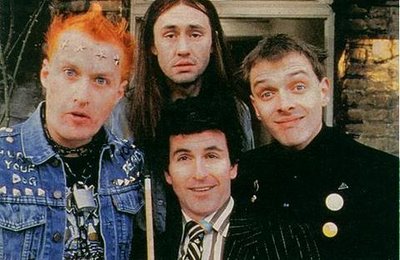
I have not writen a lot here lately (Most of it is on my sisiter blog of late but I just can't resisit posting pictures here ....Vain me boo boop be doop
Saturday, July 29, 2006
Shitty rainy day

Today is 55-60 on the old mood meter (1-111 scale). been doing some resarch this rainy North West morning and working on my horriable Sci-Fi novel (Well it kills time on dreary dull days). I was taken off Trazodone yesterday (HURRAH!!!) and put back on Seroquil (However it's spelled) Shannons mood this morning is a mess and I bet it's gonna spill over ...OH yeah it's back to school shopping day with grad ma....it's sizing up to be a hell of a day
Friday, July 28, 2006
Another Episode Of George Bush , World Leader and King of Clowns
On a lighter note lets turn ti the loveable antics of our Clown of a president George "I'm against good leadership" Bush
It was quite a performance the President put on at the G-8 Summit in Saint Petersburg, Russia this year. If you, like me, understand the phrase "quite a performance" to mean "whoa, dude, chill." Maybe a switch to decaffeinated is in order. "Yo, Blair." That's how he hailed the Prime Minister of Great Britain at a photo op at the closing of the conference. "Yo, Blair." Sounds like how I might greet one of my friends, but you know what, I'm not the President of the United States of America at a major world summit. Which, as Martha Stewart says, is a good thing.
Bush then proceeded to mumble some spurious advice to Tony Blair with a mouth full of partially masticated roll, answering once and for all why his staff goes to such lengths to keep him corralled like a roping calf in Crawford, Texas, where chewing with your mouth open is considered an art form as well as a compliment to the chef. We got some spoiled fruit running the country and he's loose, playing frat boy diplomat with the big kids, and everything is going horribly awry, people!
Bush, as bored with the whole concept of diplomacy as a five year old stuck in the quantum physics section of a Jamaican library, and obviously distressed at not finding Premier Putin to gaze soul searchingly into the eyes of, wandered around the big conference table finally lighting upon German Chancellor Angela Merkel. Distractedly, he began to give her a backrub prompting a typical Tuetonic reaction, in which Ms. Merkel tensed up tighter than a retaining wire on the mast of a sailing ship in a force five gale. She hunched her shoulders, grimaced, and threw up her hands in an apparent plea for the World Court to augment Bush's future war crimes trial with a sexual harassment charge.
What did he expect? For her to turn around and whisper seductively, "I'll give you a week to cut that out?" She's German, for crum's sake. East German. Everyone knows the East Germans are as cuddly as a stainless steel teddy bear. I imagine we should consider ourselves lucky he didn't grab her butt and make "honk-honk" noises. Or pulled a "gotcha" where he pokes her in the chest and then tweaks her nose after she looks down. And you know the cupped hand under the armpit thing is definitely in his arsenal.
Jobs

Inspired by my previous post I thought I would post the 15 jobs I have had over the past 2 years, I think my high volume of turn over shows how being Bi-polar 1 affects ones work. In some jobs where they discovered my condition I was treated much differently in a bad way but in all honesty the list includes 1 lay-off for lack of work , 1 temp job and 1 incident where I am convinced I was fired because they thought I was Jewish (I am not) and my boss was openly anti-Semitic .
1. Invoice manager at National Scientific
2. Purchaser (Non inventoried supply) Harris Calorific temp job
3. CTG Front desk receptionist
4. Rebecca and Executive Chef (Friends who gave me an opportunity to excel where I failed them)
5. Schotzsky's Head Baker (Discrimination after a Depakote induced seizure)
6. Washington Casino and Resort ast. Baker
7. Halfmoon Bay bar and grill Sous Chef laid off
8. Coleys Line cook
9. Island Café Kitchen manager …lasted a month there
10. Baked Alaska Baker Nazi Bastards
11. Schooner Chef
12. Locos bar and Grill line cook (While working at Harris at the same time # 2)
13. The Grill in Athens (Working at # 5 then too)
14. Night Archivist for U.G.A.'s Library (Right befor # 5)
15. Host at Tokyo Sushi Befor U.G.A.
Man I suck
The price of being poor
There are people, concentrated in the Hamptons and Beverly Hills, who still confuse poverty with the simple life. No cable TV, no altercations with the maid, no summer home maintenance issues -- just the basics like family, sunsets and walks in the park. What they don't know is that it's expensive to be poor.
In fact, you, the reader of middling income, could probably not afford it. A new study from the Brookings Institute documents the "ghetto tax," or higher cost of living in low-income urban neighborhoods. It comes at you from every direction, from food prices to auto insurance. A few examples from this study, by Matt Fellowes, that covered 12 American cities:
Poor people are less likely to have bank accounts, which can be expensive for those with low balances, and so they tend to cash their pay checks at check-cashing businesses, which in the cities surveyed, charged $5 to $50 for a $500 check.
Nationwide, low-income car buyers, defined as people earning less than $30,000 a year, pay two percentage points more for a car loan than more affluent buyers.
Low-income drivers pay more for car insurance. In New York, Baltimore and Hartford, they pay an average $400 more a year to insure the exact same car and driver risk than wealthier drivers.
Poorer people pay an average of one percentage point more in mortgage interest.
They are more likely to buy their furniture and appliances through pricey rent-to-own businesses. In Wisconsin, the study reports, a $200 rent-to-own TV set can cost $700 with the interest included.
They are less likely to have access to large supermarkets and hence to rely on the far more expensive, and lower quality offerings, of small grocery and convenience stores.
I know I've been there and am there.
Having fallen from a middle class life style following a nightmare divorce, DUI, two suicide attempts death of my mother,custody trist, and 15 jobs in two years and five hospitalizations I found my self dirt poor.
$7 an hour, or about $14,400 a year, I wasn't in the market for furniture, a house or a car. But the high cost of poverty was brought home to me within a few days of my entry into the low-wage life, when, slipping into social-worker mode, I chastised a co-worker for living in a motel room when it would be so much cheaper to rent an apartment. Her response: Where would she get the first month's rent and security deposit it takes to pin down an apartment? The lack of that amount of capital -- probably well over $1,000 -- condemned her to paying $40 a night at the Day's Inn.
Then there was the problem of sustenance. I had gone into the project imagining myself preparing vast quantities of cheap, nutritious soups and stews, which I would freeze and heat for dinner each day. But surprise: I didn't have the proverbial pot to pee in, not to mention spices or Tupperware. A scouting trip to K-Mart established that it would take about a $40 capital investment to get my kitchenette up to speed for the low-wage way of life.
The food situation got only more challenging when I, too, found myself living in a motel. Lacking a fridge and microwave, all my food had to come from the nearest convenience store (hardboiled eggs and banana for breakfast) or, for the big meal of the day, Wendy's or KFC. I have no nutritional complaints; after all, there is a veggie, or flecks of one, in Wendy's broccoli and cheese baked potato and I am a vegitarian.
There are other tolls along the road well-traveled by the working poor. If your credit is lousy, which it is likely to be, you'll pay a higher deposit for a phone. If you don't have health insurance, you may end taking that feverish child to an emergency room, and please don't think of ER's as socialized medicine for the poor. The average cost of a visit is over $1,000, which is over ten times more than what a clinic pediatrician would charge. Or you neglect that hypertension, diabetes or mystery lump until you end up with a $100,000 problem on your hands.
So let's have a little less talk about how the poor should learn to manage their money, and a little more attention to all the ways that money is being systematically siphoned off. Yes, certain kinds of advice would be helpful: skip the pay-day loans and rent-to-pay furniture, for example. But we need laws in more states to stop predatory practices like $50 charges for check cashing. Also, think what some microcredit could do to move families from motels and shelters to apartments. And did I mention a living wage?
If you're rich, you might want to stay that way. It's a whole lot cheaper than being poor.
Things that Piss me off...
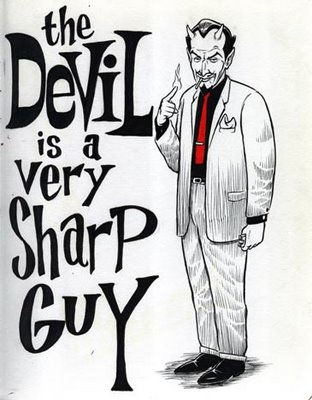
Some things that piss me off. This Morning. Remember lots pisses me off and this is just this mornings list (Remember my 50 mood too)
1. Oprah doing a special on what it's like to live on min. wage…come on you egotistical %#&*$, that's already been covered by the brilliant series 30 Days.
2. People getting stiffer sentences for crimes against cops than the general public. This wouldn't piss me off if cops would get stiffer sentences for their crimes…come on when they do that THEY violate the public trust.
3. People who leave stupid threatening comments her not that I mind negative ones but at least show some intelligence ….I do however bet I know who is leaving some of them ….
4. Bush and Cheney….they always piss me off.
5. Joyce
6. My Pops attitude
7. 5. Mike and Willia (See#4).
8. My Meds
9. My apartment (See # 4)
10. B.J.
11. Matthew
12. Bruce
13. My coffee pot
14. Meth heads and other drug addicts…Sheeesh
15. The Jabberwocky that lives in my apartment building (see # 14)
16. The Troll under my stairs
17. .Chris Holen and The Baked Alaska
18. Nazi fucks (See # 17)
19. Shitty coffee
20. Number 20
21. Dumb Cats
22. My body and mind
23. My wrist
24. Gestational Diabetes
25. This goddamn sqeeky chair
26. Coming up with funny crap to put on this list
27. My computers …all the three of the mother%$#&*?s
28. 28.Morning television
29. This list
30. Blogspot….the site has been wacky the past few days double entering my post, blanking others out and screwing up my template…or maybe it's THIS computer or maybe just me whatever I don't care I'm pissed.
31. Not being able to come up with 31



